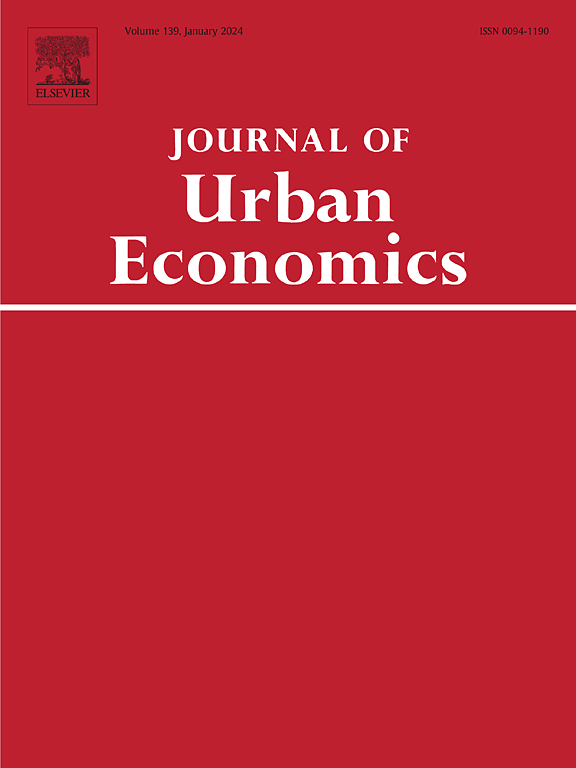土地使用管制的地方原因和总体影响
IF 5.7
1区 经济学
Q1 ECONOMICS
引用次数: 0
摘要
我研究了为什么一些城市有严格的土地使用监管,监管如何影响美国经济,以及政策制定者如何减轻其负面影响。我开发了一个定量的空间均衡模型,在这个模型中,地方监管是由投票内生决定的。在拥有吸引人的便利设施的高产城市,土地所有者投票支持严格的监管。该模型解释了观察到的城市间监管差异的40%。定量实验表明,过度的地方监管降低了总生产率,但不一定会降低福利,因为与租房者不同,土地所有者从监管中受益。我建议采取联邦政策,通过削弱监管土地使用的激励机制来提高生产率和福利。本文章由计算机程序翻译,如有差异,请以英文原文为准。
Local causes and aggregate implications of land use regulation
I study why some cities have strict land use regulation, how regulation affects the U.S. economy, and how policymakers can mitigate its negative consequences. I develop a quantitative spatial equilibrium model where local regulation is determined endogenously, by voting. Landowners in productive cities with attractive amenities vote for strict regulation. The model accounts for 40% of the observed differences in regulation across cities. Quantitative experiments show that excessive local regulation reduces aggregate productivity, but not necessarily welfare because, unlike renters, landowners benefit from regulation. I propose federal policies that raise productivity and welfare by weakening incentives to regulate land use.
求助全文
通过发布文献求助,成功后即可免费获取论文全文。
去求助
来源期刊

Journal of Urban Economics
Multiple-
CiteScore
10.60
自引率
4.80%
发文量
64
期刊介绍:
The Journal of Urban Economics provides a focal point for the publication of research papers in the rapidly expanding field of urban economics. It publishes papers of great scholarly merit on a wide range of topics and employing a wide range of approaches to urban economics. The Journal welcomes papers that are theoretical or empirical, positive or normative. Although the Journal is not intended to be multidisciplinary, papers by noneconomists are welcome if they are of interest to economists. Brief Notes are also published if they lie within the purview of the Journal and if they contain new information, comment on published work, or new theoretical suggestions.
 求助内容:
求助内容: 应助结果提醒方式:
应助结果提醒方式:


